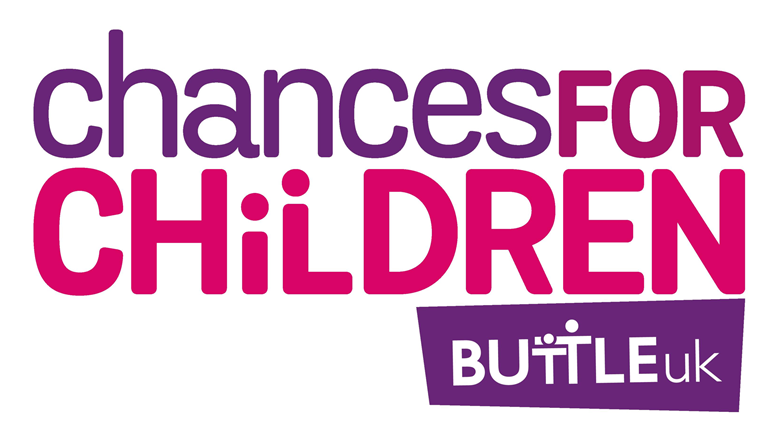Meet our Grants Development Officer for Northern Ireland and the West Midlands
Beth McIvor is one of our GDO's working with children, young people and families to create Chances for Children grants in Northern Ireland and the West Midlands.
Tell us a bit about your background and what brought you to the charity sector?
I spent the first 20 years of my working life in the private sector, mainly within the general insurance industry. Following the merger of the organisation I was working for and subsequent re-location hundreds of miles from my home (and across the Irish Sea) I took some time to consider what I really wanted to do. Many would say that I had a bit of a mid-life crisis. I had been a Home Start volunteer for 8 years, supporting families with very young children that were struggling due to children’s behaviours within the home and school, post-natal depression, mental health issues amongst others. I was also a director in a local community organisation which involved supporting people with a range of needs within the community.
I then made the conscious decision to apply to complete a degree in Social Work, I was in my 40’s at this stage. As a strong believer in life-long learning this did not daunt me in the slightest, although I am not sure my teenage children took the idea of me attending university at the same time as they were with the same level of enthusiasm.
In order to make ends meet during this time, as well as increase my knowledge and give me the skills needed for my new career I worked in homeless hostels throughout Northern Ireland. This provided me with significant insight into the needs of homeless people and the many barriers they face on a day to-day basis.
Within Social Work I worked closely with teenage parents, estranged young people, young people with learning disabilities and families requiring support. I was particularly concerned by the need for support for young children removed from their homes for their own safety and I decided to take the next step and register as a foster carer. There are many children coming into the system on a daily basis that are fearful with nowhere to go on that first night, so I registered as a short-term foster carer as we as a family could provide a home for children for those first few days in the ‘system’. As I worked full-time I felt this was as much as I could commit to. The very first child that came to our door stayed with us for two years. She was only supposed to be with us for two nights so that didn’t quite go as planned! There is a growing need for foster carers in Northern Ireland and throughout the UK, and I would encourage others to consider this as it is both very rewarding and challenging.
What were the main problems you noticed in the sector and the UK when you started working in social work? What did you learn?
I learnt a lot about what youth homelessness looks like. The difficulties and the struggles that a young person can experience when not supported by a family network, and in particular how easy they can get caught in a downward spiral without consciously being aware of it.
Support for estranged young people is not adequate. An estranged young person of 16, 17, 18 years of age can feel completely lost, with no home, with no family support, very lonely, very isolated – it’s extremely difficult for them to cope and move into their next life stage as a focused and resilient young person.
Are the rates of young homelessness quite high in Northern Ireland?
Yes, sadly they are. Although there are agencies that support the young people and provide them with accommodation often this is very basic and, in some areas, would be described as poor. It is very difficult for a young person to move on from this point successfully as they have many barriers to overcome i.e. there is a stigma attached to the accommodation address which result in relationship and employment opportunities being much more difficult.
What would you say are the main differences you’ve seen between those applying for grants in England in the West Midlands compared to Northern Ireland?
I would say there are 2 main differences – housing and language barrier.
It appears that the housing issue in the West Midlands, particularly in the Birmingham area, is massive. This is largely to do with population size and the high number of people the local authority is trying to accommodate. In Birmingham alone there is a population of 2.6 million, with the West Midlands having a population of approximately 6 million, Northern Ireland has a population of approximately 1.8 million. As a result, it would appear from the grant applications received that homeless families in the West Midlands spend a much longer time in refuge or temporary accommodation than families in Northern Ireland.
I also find that there are proportionately higher numbers of families being supported by Buttle UK in the West Midlands where the parent’s first language is not English. This can create a significant barrier for families seeking support from many organisations including housing, health and schooling and as a result negatively impact on the children.
What are the different services available to people in Northern Ireland compared to those in the West Midlands?
From working in both areas for a number of years I feel that Birmingham Local Authorities focuses their funding into support services on the ground to work closely with families. However, there would be less funding put into assisting families with funding to set up a new home and providing basic items for the home i.e., discretionary support. It would appear in Northern Ireland that the focus of the funding is directed towards individual family discretionary support with a smaller portion of the funding being ring fenced to support organisations working with families on the ground.
What is the most rewarding part of working at Buttle?
Keeping families together and helping support those families that have been re-united. Grant funding can help ease the pressure from a family and therefore along with support services on the ground can help keep families together, reducing the likelihood for the need for intervention which may result in children coming into the care system. Instead Buttle UK funding can help build a safe and healthy environment within the family unit so the children can thrive. I am delighted to be part of making that possible.
Is there anything that you think could be done differently with Buttle’s grants? I know we talk about this a lot already within the charity and are always trying to make changes to our grants.
This is a discussion that has been on the agenda since I joined Buttle UK 6 years ago and during that period I have seen many changes that have come about from listening to the voices of referrers and families. I think the fact that we are open to the discussion on making changes shows that we are prepared to change and develop our thinking to best meet the needs of the children and young people.
Of course, to be in the position to support more families would be great. However, it is not just about funding, it is also about directing funding to the families in most need and at the right time.
We’ve also discussed this a lot at Buttle, but do you think our grant amounts should go up from the current upper limit of £2000?
If we want to be making a more significant difference, which has always been our goal in creating the Chances for Children grants programme, then yes, we need to be looking at this. I think we should consider structuring our grants in such a way that a family with one child, three children or seven children, can all get the same amount per child. This way we are acknowledging that it takes more to support five children re-building their lives after a crisis than it does to support one child. I would probably review our Estranged Young People amounts as well, as £2,000 for one individual is again not the same as giving £2,000 for a family with five children. If you’re moving into an empty house with four or five children that are all moving school and needing new clothes, then a significant amount of money is needed to make a real and lasting difference. Obviously, a change like this would mean helping less children, so it is all about getting the balance right. This is something that needs to be explored gradually as more funding becomes available.
Overall, what do you think is the biggest crisis facing people in poverty in the UK at the moment?
I think a family having to flee their home for their own safety is a very difficult thing to do. I understand in Scotland that there is a scheme where it is the perpetrator that is forced out of the home, and I don’t think it matters whose name the ownership or the tenancy is in. Whereas in Northern Ireland, Wales and England, it is the family that is forced to flee because the perpetrator cannot be removed from the property if they have a legal right to live there.
Of course, the Scottish approach can only really work if there is a very strong police or social services presence around the family so the perpetrator cannot return, and there is no risk to safety or danger to life. Not all perpetrators will break windows or stalk or follow families, but where there are high levels of violence, that is the key concern. Many of the families I support have had to flee twice because the perpetrator has found them, so there will always be some families that have to leave their current address if the risk to safety is high. However, there are many families that could stay in their home, and that would also reduce the demand for housing in the short-term. This also helps to elevate the problem of having to uproot children from their schools, friends and family. If they could stay it would definitely help to stabilise family life for the children.
Do you have any tips or advice for anyone thinking of going into social work?
I would highly recommend it. The more people that are in the profession, especially those who have a good understanding of individual circumstances and can empathise easily with people facing so many different struggles in life. If a person’s heart is in the right place, then social work definitely is a career worth considering.





